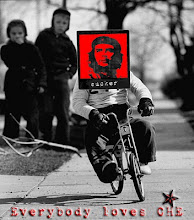
Scris de Laura Cernahoschi.
Mi-a atras atentia ipoteza unui Decembrie Fierbinte.
De altfel, nu vi se pare ciudat ca, date fiind faptele acuzate de politruci, e cam prea liniste?
In prima faza insa, am zis ca e mai ok sa verific.
Si iata mail-ul primit de la Stratfor, si care contine articolul complet:
***
"Romania: A Disputed Election and December Unrest
DANIEL MIHAILESCU/AFP/Getty Images
Incumbent Romanian President Traian Basescu addresses supporters on Dec. 6 in Bucharest
Official results for the Dec. 6 election show incumbent Romanian President Traian Basescu defeating opposition leader Mircea Geoana in the country’s run-off election, with Geoana alleging voter fraud. Though political turmoil is nothing new for Romania, the sharp economic downturn makes domestic unrest an increased possibility.
Incumbent Romanian President Traian Basescu won the runoff election for the presidency, defeating Social Democratic Party (PSD) challenger and former Foreign Minister Mircea Geoana 50.3 percent to 49.7 percent, according to the results released Dec. 7 by Romania’s central election office. Geoana claimed victory Dec. 6 after exit polls showed him narrowly beating Basescu, and Geoana has refused to accept the official results, alleging voter fraud.
Uncertainty over the election could lead to potential unrest in Romania, particularly as the country grapples with the effects of a sharp economic downturn and the politically contentious anniversary marking the fall of communist rule.
Power in Bucharest is shared by the president and prime minister. However, Romania’s government collapsed Oct. 1 after nine PSD ministers resigned from the Cabinet, leaving Prime Minister Emil Boc and his Democratic Liberal Party (PDL) without enough support in the parliament to govern. Many saw this as a pre-election maneuver by Geoana to put Basescu — who is formally independent but supported by the PDL — into a difficult spot.
The upcoming crisis over the presidential elections will undoubtedly delay the appointment of the new government and prime minister. Prior to the presidential election, there was a consensus in the parliament among the opposition parties that the mayor of Sibiu, Klaus Johannis, should become prime minister. Johannis is seen as an independent because he is unaffiliated with any large party, being the leader of a very small party, the Democratic Forum of Germans in Romania. But with Basescu claiming victory, it is unlikely that the opposition parties will be able to convince him to accept their candidate as the prime minister.
The delay in forming a government comes at a bad time for Romania. Political uncertainty surrounding the government has led to the blocking of the 20 billion euro standby loan from the International Monetary Fund. The economy, which grew at 6.2 percent in 2008 — the fastest gross domestic product (GDP) growth in all of the European Union — is forecast to decline by 8.5 percent in 2009. Furthermore, the European Union has already threatened to block EU funds to Romania for past corruption, and hints of a fraudulent election could lead to a renewed call for such action in Brussels.
Aside from the economic problems, there is considerable social angst in Romania. Prior to the runoff election, a number of supposedly spontaneous protests erupted on Dec. 1 in Timisoara. While the protests were apparently “anti-communist,” demonstrators were seen ripping up Geoana posters. Geoana’s supporters have claimed that the protests were orchestrated by Basescu’s camp to connect Geoana and his center-left PSD with communist rule in Romania.
Increased unrest is highly possible. The recession, coupled with a high degree of economic uncertainty, is likely to provide motivation for many to take to the streets. Furthermore, events marking the 20th anniversary of the Romanian anti-communist revolution will begin on Dec. 16 and will offer an opportunity for anti-Basescu parties to coalesce, echoing the way that the 50th anniversary of the 1956 Hungarian uprising against Soviet occupation spurred anti-government rioting in Budapest in October 2006.
This will be a welcome sight in Moscow, as Basescu is considered as a serious thorn in Russia’s side. His support for an anti-communist revolution in neighboring Moldova and staunch support of the United States have made him the Kremlin’s main enemy in the Balkans. Basescu will undoubtedly use this fact to present himself as the only legitimate political heir of the anti-communist struggle in Romania. The conflict between Basescu and Geoana, grafted onto the coming anniversary of the anti-communist uprising, could provide for a very combustible December in Romania."
***
Interesanta ipoteza. Si spun eu nu de neglijat. Articolul cu pricina e real, il poate cere oricine. Si tind sa-i dau dreptate Laurei Cernahoschi: analistii gringo au probabil semnalele lor. La urma urmelor, nu doar rusii au KGB. Si americanii au CIA.
Mircica, personal m-as bucura. Decembrie 1989 a fost la fel de cald ca acest decembrie. Incep sa cred ca si Mosu' o sa imi faca cadou pusca aia...











Articolul are vadite nuante pro-psd. Este scris cu multa grija.
RăspundețiȘtergerePSD nu are nici o justioficare morala ca sa apara pe strada la comemorarile din 16 decembrie. Ei au fost criminalii sau sunt urmasii lor.